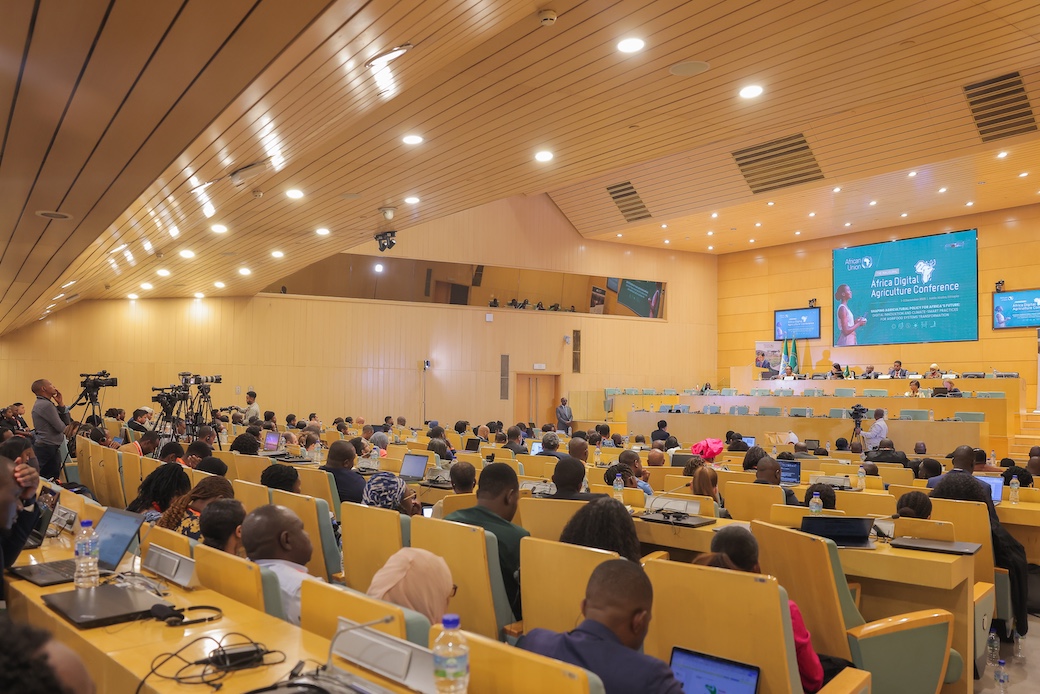Isiolo pastoralist women shift to farming for food security, economic empowerment
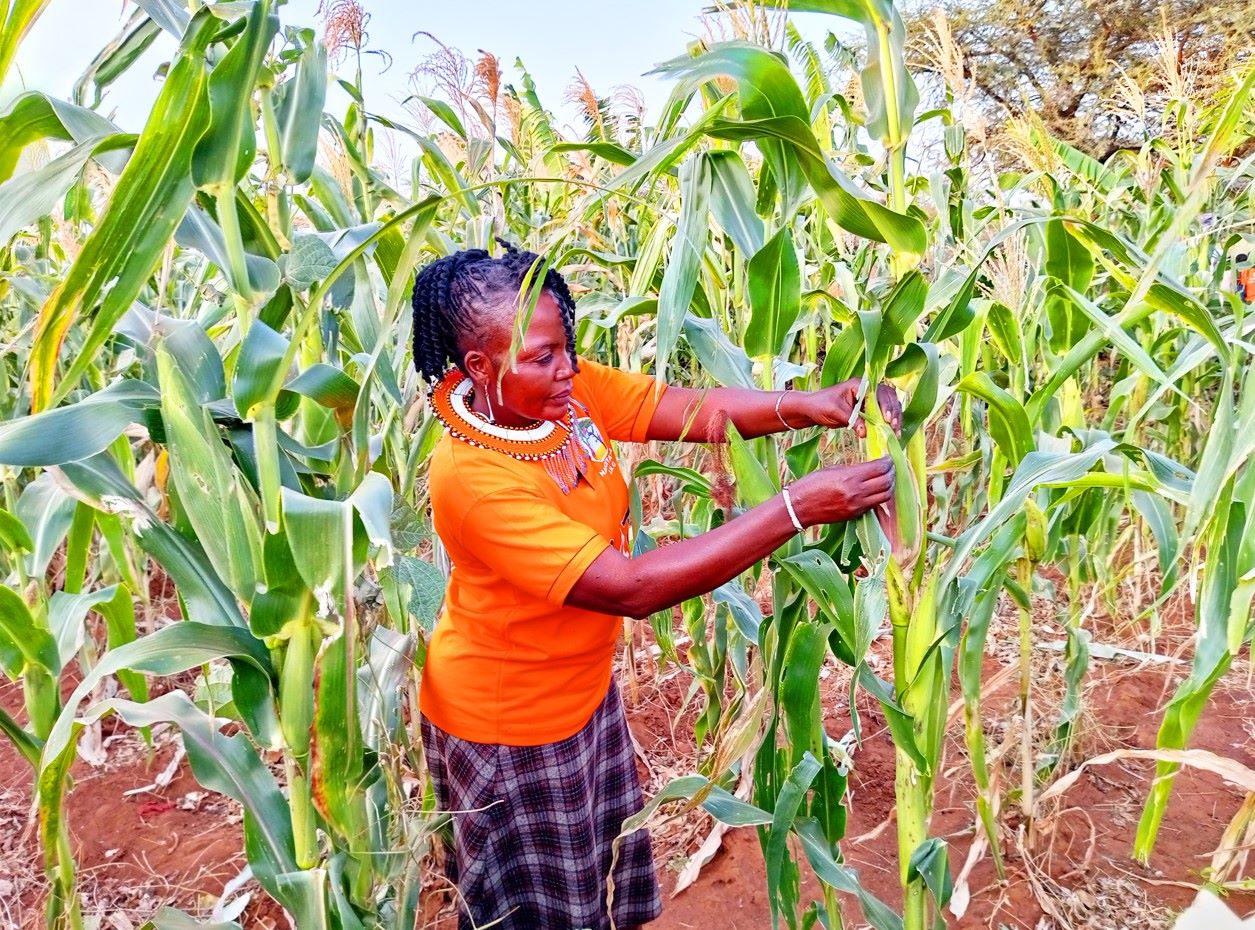
The growing number of women pursuing farming as an economic activity has been praised for contributing to a shift in thinking towards diversification of livelihoods.
With pastoralism increasingly under threat due to climate change, communities are slowly embracing alternative sources of livelihood to beat hunger and achieve their children's nutritional needs.
Pastoralist women in Isiolo County are leading the pack in diversification into crop farming which though challenging due to inadequate knowledge of modern farming methods, erratic weather patterns, and water unavailability, is proving lucrative.
More To Read
- Isiolo courts investors as county pushes public–private partnerships in economic transformation drive
- Senate summons Isiolo, Kericho governors for skipping audit hearings
- Court nullifies Isiolo County’s Sh7.3 billion budget over illegal process, lack of public participation
- Isiolo County unveils 10-year land use plan to curb insecurity and human–wildlife conflict
- Nurses, Isiolo County ink deal, end two-month-long strike
- Isiolo Stadium works resume after six-year delay
Cecilia Ipokura, a member of the Nawoiyatira women group in Aremiet, is among those cashing in from farming, a venture whose returns have enabled her to comfortably pay school fees for her daughter in Secondary School without strain.
She has been farming for the last nine months and has planted maize, beans, green grams, tomatoes, vegetables, pepper, pawpaw, sweet potatoes, and watermelon among other high-value crops on her half-an-acre farm.
"If you met me last year at a time like this, you would have pitied me. I relied on casual jobs in Isiolo town and did any (work) that came my way to sort my family bills and pay school fees. Sleeping on an empty stomach was part of our life," Cecilia shared during her group's meeting at her home.
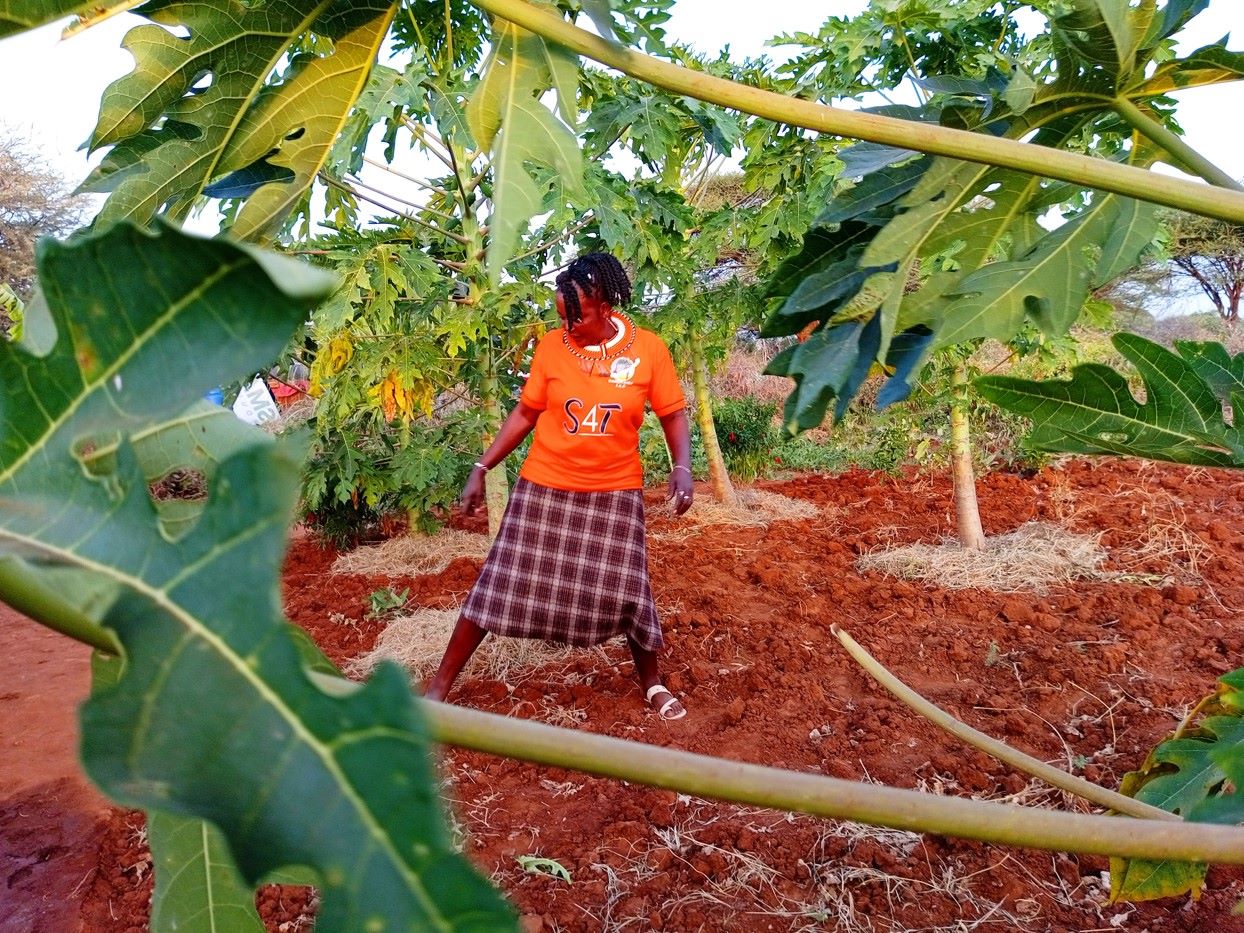 Cecilia Ipokura at her pawpaw farm within Aremiet area in Isiolo County. Photo/Waweru Wairimu
Cecilia Ipokura at her pawpaw farm within Aremiet area in Isiolo County. Photo/Waweru Wairimu
Her breakthrough came in August last year when she was enlisted for a four-day training by World Vision and consequently benefited from the Isiolo Women Economic Empowerment Project funded by the Korea International Cooperation Agency (KOICA).
"The training on farming opened up my mind and I discovered that I was 'sleeping' on a goldmine considering I had land where I could plant a variety of crops and I was energetic enough to till the land," she says.
Part of the project's requirement was for the beneficiaries to prepare their land before any support could be channelled to them which Cecilia did.
By the time the October-November-December rains fell, she had already prepared the land and later planted maize and beans. "Hunger in my family is now something of the past. I no longer buy food because it's in plenty here (at the farm) and part of the money I get from the sale of the produce goes to savings," an elated Cecilia told The Eastleigh Voice during a visit at her farm.
Her farm received a major boost following the drilling of a local borehole to enhance water access for residents. Pipelines were also laid into their farms.
Cecilia, her group's climate-smart agricultural champion, also farms poultry and bees at home, with the former earning at least Sh300 each day.
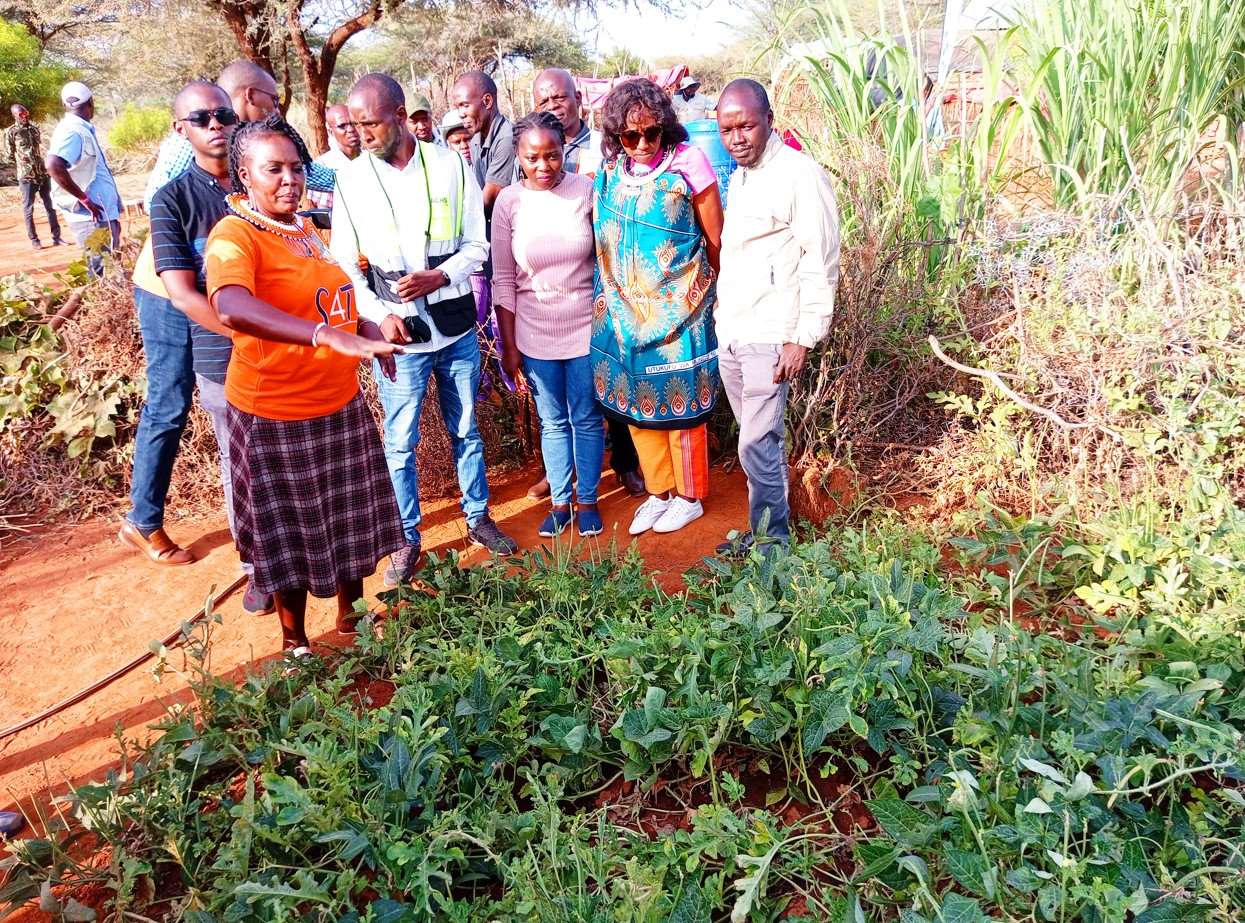 Cecilia Ipokura (L) with representatives from Smachs Foundation led by President William Ruto's daughter Charleen (second right) and World Vision officials who visited her farm for benchmarking on June 12, 2024. Photo/Waweru Wairimu
Cecilia Ipokura (L) with representatives from Smachs Foundation led by President William Ruto's daughter Charleen (second right) and World Vision officials who visited her farm for benchmarking on June 12, 2024. Photo/Waweru Wairimu
Another farmer Francisca Nasieku of Tonyoutu Epiding Women Group recounted how realising that pastoralism had become unreliable, her group opted to start kitchen gardens at their homes.
"Our children can access nutritious foods preventing them from suffering malnutrition. We previously sourced vegetables in Isiolo town but have enough for our consumption and sale," she said.
Nasieku said the struggle they had in the past fending for their children when their husbands were away from home in search of water and pastures for the livestock was no more.
Ann Cheperiko of the Atoting'as women group said the project's savings component (Savings for Transformation) had inculcated a saving culture in the farmers and enabled them to access loans to undertake various income-generating initiatives.
"Access to resources has enhanced financial inclusion of women and helped in the promotion of girl education because we can access loans and pay school fees for our daughters so that there are no excuses to marry them off," she said.
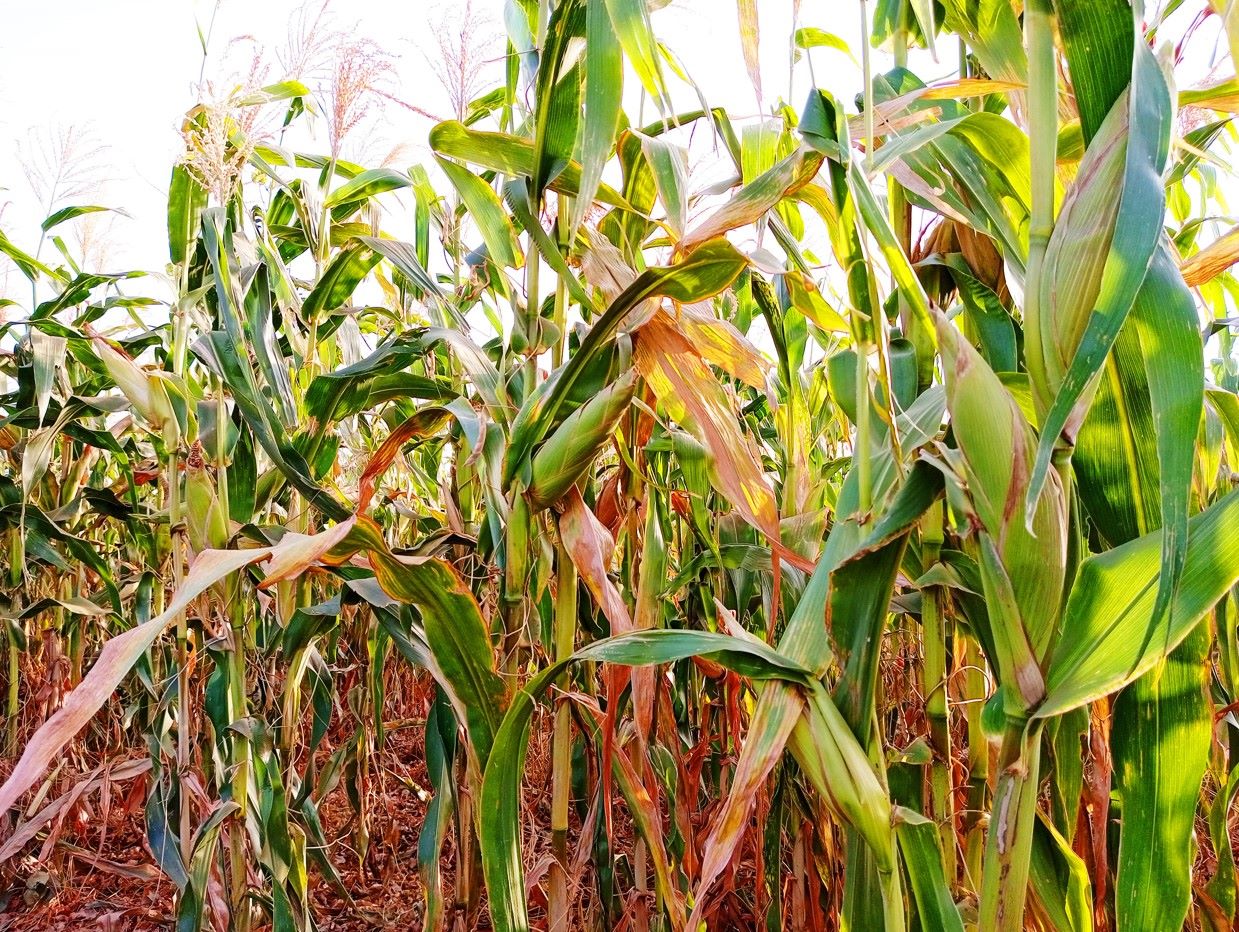 Cecilia Ipokura's maize plantation at Aremiet in Isiolo County. Photo/Waweru Wairimu
Cecilia Ipokura's maize plantation at Aremiet in Isiolo County. Photo/Waweru Wairimu
Farming, she says, is more rewarding than charcoal burning which the majority of her group members previously engaged in. "Helping our husbands to provide for the family has earned us respect."
Project Coordinator Evans Wafula said the three-year programme focused on the capacity building of women and the provision of water to enable them to undertake farming so that they have a regular food supply throughout the year and support their children's nutrition.
"It has three models; savings for transformation, value chain development and Water, Sanitation and Hygiene (WASH) which improves water access and lessens the burden women face walking longer distances to fetch water which makes them have less time to engage in gainful activities," he said.
The project targets to benefit 6000 people in water provision and food security.
The farmers however lamented the lack of adequate extension services and the destruction of their crops by wildlife.
The growing number of women pursuing farming as an economic activity has been praised for contributing to a shift in thinking towards diversification of livelihoods.
Top Stories Today








